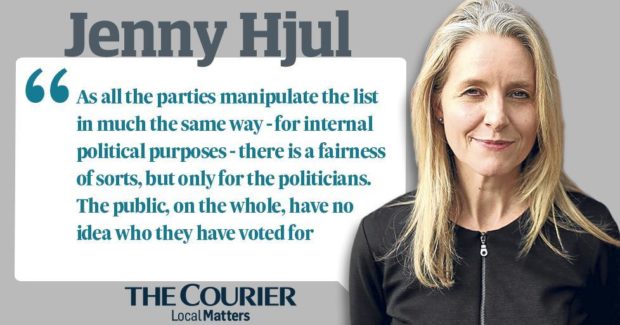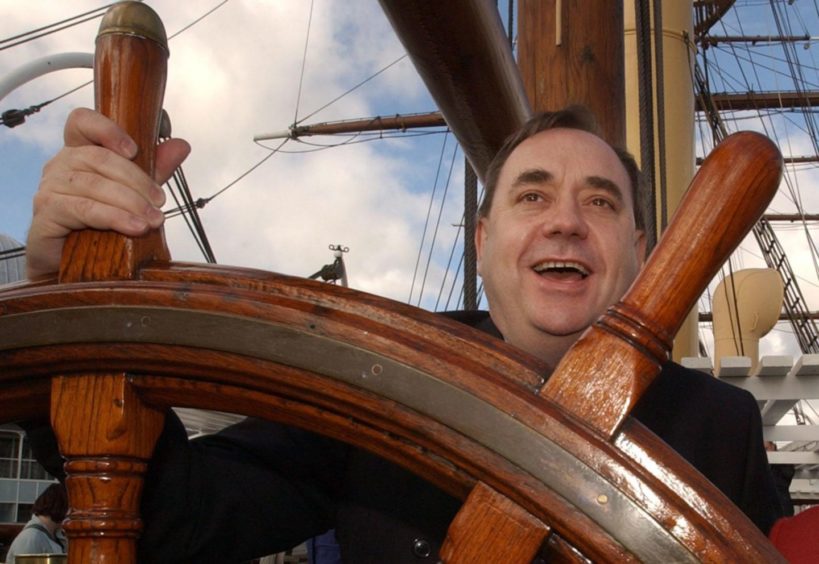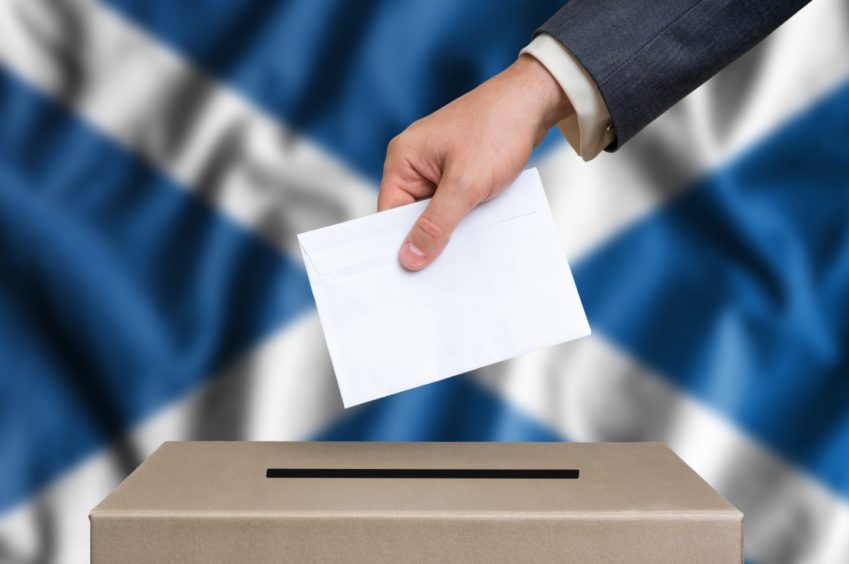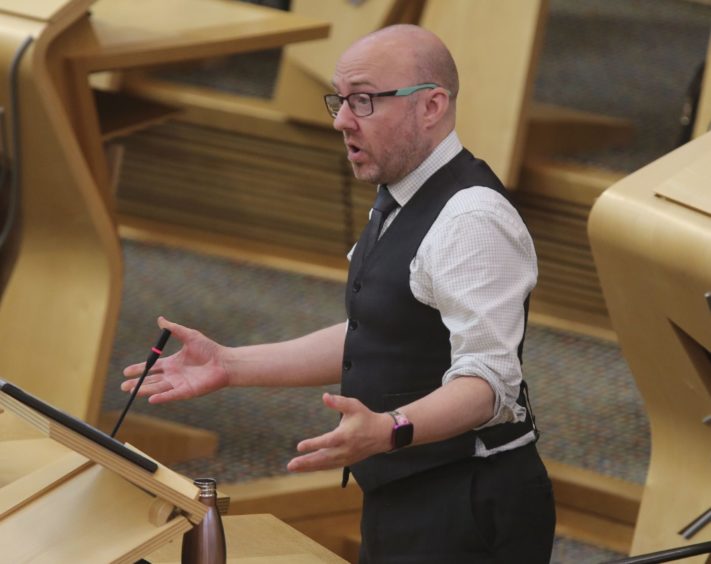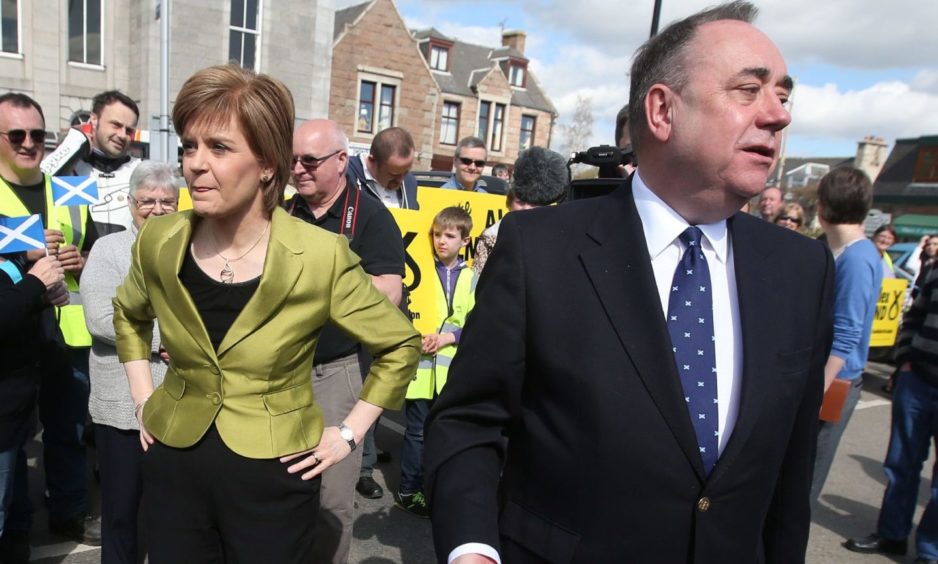An independent Scotland would be significantly worse off today than in 2014 when the last referendum was held, according to a Financial Times analysis.
A combination of lower-than-expected tax revenues, Brexit and the impact of Covid would plunge the country into dire straits and force massive tax hikes or cuts to public spending.
These kinds of warnings have been issued before and yet the latest opinion poll, by Panelbase, suggests the nationalists will win a supermajority on May 6.
A hung parliament is looking increasingly hopeless and for two reasons: Salmond himself and the Holyrood regional list system that is an affront to democracy
Given the fact that core separatist support can be guaranteed to deliver around 40 to 50 per cent of the vote, and that the unionist opposition is split, an SNP majority was always a likely outcome of this election.
But following a torrid year for the party, with the washing in public of its dirty linen at the recent Alex Salmond inquiry, the other parties might have expected to weaken the nationalists’ lead enough to secure a hung parliament.
This is looking increasingly hopeless and for two reasons: Salmond himself and the Holyrood regional list system that is an affront to democracy.
Out of the parliament’s 129 seats, 73 are elected on a first past the post constituency basis (similar to Westminster), with the remaining 56 decided via eight additional member regions.
The latter were designed as an attempt at proportional representation, possibly – it’s hard to remember what the founders of devolution were thinking, but it was surely not what we have now.
Thanks to the list, an MSP can be elected on a handful of votes with no need to campaign or persuade constituents of his or her suitability for the job.
Each party puts forward candidates, but as the list is closed, voters do not see these names at the ballot box, just the parties.
Once invented, the system quickly degenerated into a stich-up by which parties rewarded, or penalised, those in favour or not, as there is a pecking order in place. If you are selected to stand for, say, Labour’s list you must work your way into the top two or three (out of seven) to be in with a chance.
As all the parties manipulate the list in much the same way – that is, for internal political purposes – there is a fairness of sorts, but only for the politicians. The public, on the whole, have no idea who they have voted for.
Until the current election, the worst consequence of the list was the Greens. Although polling less than five per cent of total votes in 2016, they won six seats, all under the additional member system (AMS), and have since held the balance of power in Holyrood.
A paper written by the Electoral Reform Society following that election questioned how representative this is.
‘The strange effects of Willie Rennie winning North East Fife and thus ensuring the Greens then beat the Lib Dems to be third largest party, or indeed Jackie Baillie winning Dumbarton and thereby ensuring that the Tories got more seats than Labour, illustrates how parties are still struggling with how best to campaign to maximise seats under AMS.’
That struggle is now approaching farce with the re-emergence of Alex Salmond and his new Alba Party. Here is a politician who is deemed unfit to stand for election by 67 per cent of voters, and has a personal approval rating of minus 49 per cent.
However, he is also head and shoulders above most other politicians in knowing how to game the system.
By contesting only list seats, he reckons he can scoop up those Yes voters who don’t much care who represents them so long as they are pro-independence
He seems to have realised that, beyond his diehard loyalists, he is repulsive to voters and that his chances of attracting viable candidates for his breakaway nationalist movement were slim.
But by contesting only list seats, he reckons he can scoop up those Yes voters who don’t much care who represents them so long as they are pro-independence.
This strategy could net Salmond six seats, including one for himself, if the Panelbase survey is to be believed.
‘Arithmetically, our argument for the independence supermajority is unassailable,’ he said. ‘More MSPs supporting independence, what’s not to like?’
As it happens, those most unhappy about such a scenario are his fellow independence supporters in the SNP. Nicola Sturgeon has already ruled out the prospect of working with him, should he get elected, so deep is the mutual hatred.
She is urging her fan base to cast both their constituency and list votes for the SNP, despite Salmond’s sums appearing to offer her a comfortable secessionist majority. Perhaps Sturgeon values the quality of her support above its quantity.
She won’t be the biggest loser though if Salmond’s ploy is successful; that booby prize will go to the Scottish electorate, about half of whom will feel disenfranchised while the other half will wonder what they wished for.
Salmond, meanwhile, will have made the strongest case yet for electoral reform.
